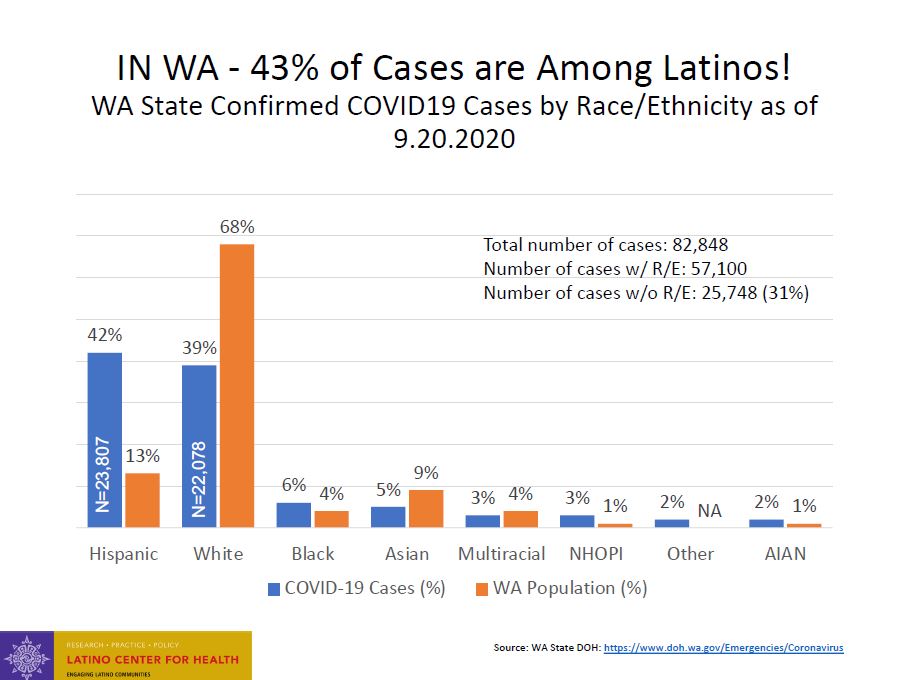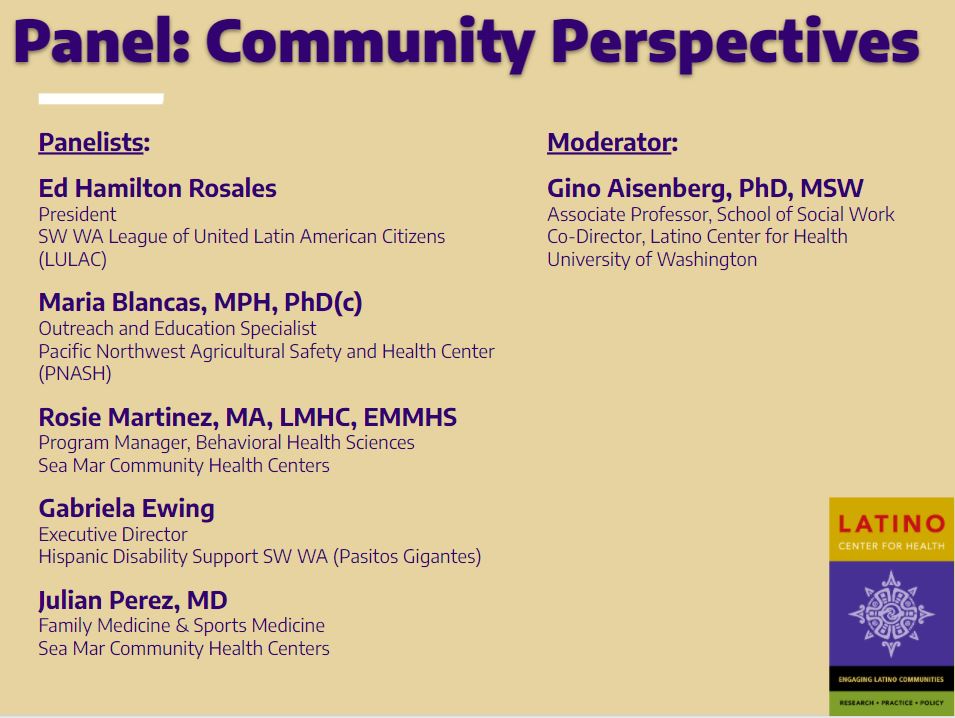Medical experts, including from the UW, provided critical information to the Spanish-speaking population in our state to address frequently asked questions, concerns, fears and myths regarding the vaccinations against the raging COVID-19 disease. The Latino Center for Health (LCH) and the Washington State Department of Health sponsored this webinar held on December 16, 2020.
Dr. Leo Morales, co-director of LCH and Assistant Dean in the UW School of Medicine; Dr. Santiago Neme, Medical Director of UWMC – NW Campus and infectious disease specialist; Dr. Julián Pérez, a physician from Sea Mar Community Health Centers; and Dr. Matías Valenzuela, Equity Director of Public Health Seattle & King County served as panelists. Pablo Gaviria, a reporter from Univision Seattle, moderated this discussion. This well-attended webinar serves as an important and necessary resource to inform our Latinx communities throughout the state as vaccinations are made available and to hopefully promote health and health equity. In Washington, Latinos are 4.2 times more likely to die from COVID-19 than whites, and they account for 35% of COVID-19 cases in our state while constituting only 13% of the state’s population.
“As a city and state, we need to ensure the equitable distribution of the COVID-19 vaccine, which means prioritizing communities that have been disproportionately impacted by SARS-CoV-2 infections and associated deaths including Latino and Spanish-speaking communities,” says Dr. Leo Morales. “This webinar is a first step in that direction.”
Here is a link to the video recording of the webinar from KOMO’s Facebook page: https://www.facebook.com/KOMONews/videos/158088332724444

